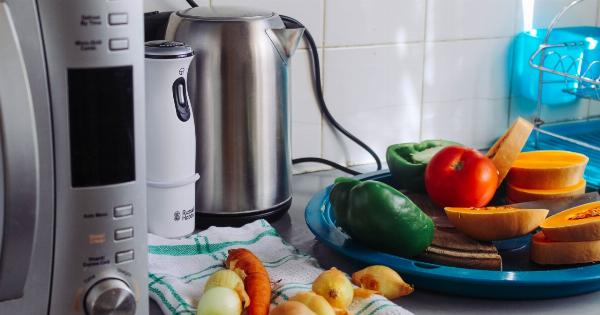As the temperature drops and winter settles in, our bodies naturally crave warm and comforting foods.
But did you know that certain foods can actually help keep you warm from within? It’s true! The right combination of nutrients can increase your metabolism, improve circulation, and boost your body’s ability to regulate temperature. In this article, we will explore the nutrition connection to staying warm and highlight some of the best foods to include in your winter diet.
The Role of Nutrition in Regulating Body Temperature
Our bodies maintain a constant core temperature of around 98.6°F (37°C). However, external factors, such as cold weather, can make us feel chilly and uncomfortable.
To combat the cold, our bodies engage in a process called thermogenesis, which is the production of heat to maintain body temperature. The foods we eat play a vital role in this process by providing the necessary nutrients.
1. Root Vegetables
Root vegetables, such as sweet potatoes, carrots, and beets, are excellent choices for promoting warmth in the body. These vegetables are rich in complex carbohydrates, which provide a sustained release of energy and help keep your body warm.
Additionally, they are packed with fiber, vitamins, and minerals, which support overall health and strengthen the immune system during the colder months.
2. Healthy Fats
Incorporating healthy fats into your diet is another way to keep warm during winter. Fats are denser in calories compared to proteins and carbohydrates, making them an efficient source of energy. Olive oil, avocados, nuts, and seeds are all great options.
They not only provide warmth but also offer numerous health benefits, including improved brain function and reduced inflammation.
3. Spices
Spices like ginger, cinnamon, and cayenne pepper generate heat in the body and promote better circulation. These culinary delights also add unique flavors to your dishes, making them more enjoyable during the colder months.
Spiced teas or warm beverages infused with these spices are a fantastic way to warm up from the inside out.
4. Whole Grains
Whole grains, such as quinoa, oats, and brown rice, are excellent sources of complex carbohydrates. These carbohydrates take longer to digest and provide a sustained release of energy, keeping you warm and satisfied for longer periods.
Additionally, whole grains are rich in fiber, vitamins, and minerals, which are essential for overall health and well-being.
5. Protein-Rich Foods
While carbohydrates play a significant role in regulating body temperature, protein is equally important. Foods such as lean meats, legumes, eggs, and dairy products provide the necessary amino acids for building and repairing tissues.
Protein also generates internal heat during digestion and helps keep you warm during the colder months.
6. Hot Soups and Stews
Nothing warms you up quite like a hot bowl of soup or stew on a chilly day. These comfort foods are not only delicious but also highly nutritious.
They are often packed with vegetables, lean proteins, and aromatic spices, providing a myriad of health benefits while keeping you cozy and warm.
7. Citrus Fruits
Citrus fruits, such as oranges, grapefruits, and lemons, are abundant during the winter season and offer a refreshing burst of vitamins and minerals.
The high vitamin C content in citrus fruits supports a healthy immune system and helps prevent winter illnesses. Additionally, the natural sugars in these fruits provide a quick energy boost, helping to increase body temperature.
8. Hot Herbal Teas
Enjoying a hot cup of herbal tea is not just soothing but also a smart choice for staying warm. Chamomile, peppermint, and green tea are excellent options, as they provide warmth and offer numerous health benefits.
Certain herbal teas, such as ginger tea, can also help soothe digestion and alleviate any discomfort caused by excess cold.
9. Dark Chocolate
If you are a chocolate lover, here’s some good news: dark chocolate can actually help keep you warm! Dark chocolate contains theobromine, a natural stimulant that increases heart rate and produces a warming effect.
When consumed in moderation, dark chocolate not only satisfies your sweet tooth but also contributes to overall warmth and well-being.
10. Hydration is Key
While it’s essential to consume warming foods, it’s equally important to stay hydrated even during the winter season. Drinking enough water ensures proper bodily functions and helps maintain optimal body temperature.
Warm herbal teas, broths, and hot water with lemon are excellent choices to stay hydrated while enjoying the benefits of warmth.
In conclusion, the foods we consume play a crucial role in regulating body temperature and keeping us warm during the colder months.
Root vegetables, healthy fats, spices, whole grains, protein-rich foods, hot soups, citrus fruits, herbal teas, dark chocolate, and staying hydrated are all valuable strategies to warm up from within. Enjoy these nutrient-rich foods and embrace the cozy comfort they bring during the winter season.































